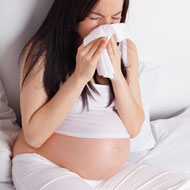- Hip Pain During Pregnancy
- Hot Flashes During Pregnancy
- Heartburn During Pregnancy
- Cold Sores During Pregnancy
- Canker Sores During Pregnancy
- Mouth Sores During Pregnancy
- Tongue Sores During Pregnancy
- Itching During Pregnancy
- IBS During Pregnancy
- Implantation During Pregnancy
- Infections During Pregnancy
- Indigestion During Pregnancy
- Increased Heart Rate During Pregnancy
- Incontinence During Pregnancy
- Hernia During Pregnancy
- Jelly Discharge During Pregnancy
- Jock Itch During Pregnancy
- Sacroiliac Joint During Pregnancy
- Kidney Pain During Pregnancy
- Kidney Failure During Pregnancy
- Kidney Changes During Pregnancy
- Knee Pain During Pregnancy
- Leg Cramps During Pregnancy
- Lower Back Pain During Pregnancy
- Lightheadedness During Pregnancy
- Labia Pain During Pregnancy
- Malnutrition During Pregnancy
- MRSA During Pregnancy
- Mild Cramping During Pregnancy
- Nausea During Pregnancy
- Ligament Pain During Pregnancy
- Muscle Spasms During Pregnancy
- Muscle Pain During Pregnancy
- Neck Pain During Pregnancy
- Night Sweats During Pregnancy
- Nerve Pain During Pregnancy
- Nipple Discharge During Pregnancy
- Nightmares During Pregnancy
- Nipples Burning During Pregnancy
- Nipples Peeling During Pregnancy
- Numb Hands During Pregnancy
- Ovary Pain During Pregnancy
- Ovarian Cyst During Pregnancy
- Ovulation During Pregnancy
- Ovarian Cancer During Pregnancy
- Overheating During Pregnancy
- Overeating During Pregnancy
- Normal Weight Gain During Pregnancy
- Joint Pain During Pregnancy
- Jaw Pain During Pregnancy
- Jaundice During Pregnancy
- Joint Stiffness During Pregnancy
- Ketones in Urine During Pregnancy
- Kidney Infection During Pregnancy
- Low Blood Pressure During Pregnancy
- Loss of Appetite During Pregnancy
- Low Iron During Pregnancy
- Losing Weight During Pregnancy
- Nipple Pain During Pregnancy
- Left Side Pain During Pregnancy
- Lactose Intolerance During Pregnancy
- Moles During Pregnancy
- Leaking & Leg Numbness During Pregnancy
- Labia Varicose Veins During Pregnancy
- Blurred Vision During Pregnancy
- HIV In Pregnancy
- Acne During Pregnancy
- Abdominal Tenderness during Pregnancy
- Swelling During Pregnancy
- Vaginal Swelling during Pregnancy
- Body Aches during Pregnancy
- Body Acne during Pregnancy
- Cervical Fluid during Pregnancy
- Dilation In Pregnancy
- Diverticulitis during pregnancy
- Bleeding During Pregnancy
- Upper abdominal pain during pregnancy
- Abdominal Pain During Pregnancy
- Back and Abdominal Pain During Pregnancy
- Migraines During Pregnancy
- Kidney Stones During Pregnancy
- Arthritis During Pregnancy
- Back Pain During Pregnancy
- Stress During Pregnancy
- Mood Swings During Pregnancy
- Insomnia During Pregnancy
- Bacterial Vaginosis Pregnancy
- Hellp Syndrome Pregnancy
- Epilepsy During Pregnancy
- Pregnancy Placental Abruption
- PTU During Pregnancy
- Posterior Pelvic Pain During Pregnancy
- Diarrhea During Early Pregnancy
- Early Pregnancy Cramping
- Lower Abdominal Pain During Pregnancy
- Menstrual Cramps Pregnancy
- Belly Sizes During Pregnancy
- Gout In Pregnancy
- Diarrhea During First Trimester
- Abdominal Pain During Pregnancy First Trimester
- Vaginal Bleeding Pregnancy Causes
- Frequent Urination During Pregnancy
- Hair Loss During Pregnancy
- Tattoo During Pregnancy
- Vaginal Bleeding During Pregnancy
- Vaginal Discharge During Pregnancy
- Snoring During Pregnancy
- Skin Discoloration During Pregnancy
- Belly Growth During Pregnancy
- Sciatica During Pregnancy
- Shortness of Breath During Pregnancy
- Saliva in Pregnancy
- Premature Rupture Of Membranes In Pregnancy
- Tingling Hands Pregnancy
- Pelvic Girdle Pain During Pregnancy
- Protruding Navel During Pregnancy
- Hemorrhoids During Pregnancy
- Forgetfulness During Pregnancy
- Flatulence During Pregnancy
- Fainting During Pregnancy
- Light-headedness During Pregnancy
- Types of Vaginal Discharge During Pregnancy
- Sciatica Pain Treatment During Pregnancy
- Pelvic Discomfort During Pregnancy
- Migraine Headache During Pregnancy
- Migraine Relief During Pregnancy
- Nosebleeds During Pregnancy
- Dysgeusia During Pregnancy
- Bloating During Pregnancy
- Chloasma During Pregnancy
- Fatigue During Pregnancy
- Pitting Edema During Pregnancy
- Mask of Pregnancy
- Spontaneous Abortion
- Causes Of Spontaneous Abortion
- Restless Leg Syndrome During Pregnancy
- Excess Saliva During Pregnancy
- Migraine Treatment During Pregnancy
- High Blood Pressure During Pregnancy
- Sore Abdominal Muscles During Pregnancy
- Symphysis Pubic Dysfunction During Pregnancy
- Treating High Blood Pressure During Pregnancy
- Prugio of Pregnancy
- Hemorrhoid Treatment Pregnancy
- Fighting Pregnancy Fatigue
- Swollen Feet Pregnancy Remedy
- Nosebleed Early Pregnancy
- Vaginal Discharge in Early Pregnancy
- Cervical Dilation Pregnancy
- Clumsiness During Pregnancy
- Dizziness in Pregnancy
- Edema During Pregnancy
- Swollen Ankles During Pregnancy
- Hard Belly During Pregnancy
- Insomnia Early Pregnancy
- Effects of Smoking During Pregnancy
- Smoking During Pregnancy Risks
- Soft Cervix During Pregnancy
- Symptoms Of Depression During Pregnancy
- Weight Gain During Pregnancy
- Depression During Pregnancy
- Alcohol Effects During Pregnancy
- Alcohol During Pregnancy
- Marijuana Smoking During Pregnancy
- Quitting Smoking During Pregnancy
- Smoking During Pregnancy
- Cervix Bleeding Pregnancy
- Closed Cervix Pregnancy
- Stress During Pregnancy Effects
- Reducing Stress During Pregnancy
- Treating Constipation During Pregnancy
- Viral Infection During Pregnancy
- Cervix During Pregnancy
- Open Cervix During Pregnancy
- Small Cervix And Pregnancy
- Swine Flu During Pregnancy
- High Cervix Pregnancy
- Cervix Size During Pregnancy
- Pregnancy Breast Cancer
- Constipation During Pregnancy
- Friable Cervix and Pregnancy
- Checking Cervix During Pregnancy
- Low Cervix During Pregnancy
- Control Weight Gain During Pregnancy
- Weight Gain During Pregnancy Week By Week
- Tooth Decay During Pregnancy
- Stress In Early Pregnancy
- Tooth Extraction During Pregnancy
- Working During Pregnancy
- Toothache During Pregnancy
- Tooth Pain During Pregnancy
- Long Cervix During Pregnancy
- Thin Cervix During Pregnancy
- Cervix Changes In Pregnancy
- Itchy Belly During Pregnancy
- Low Platelets During Pregnancy
- Pregnancy Metallic Taste
- Itchy Skin During Pregnancy
- Brown Discharge During Pregnancy
- Pregnancy Changes
- Chickenpox And Pregnancy
- Cholestasis of Pregnancy
- DVT During Pregnancy
- Fibroid Uterus During Pregnancy
- Fifth Disease during Pregnancy
- Yeast Infection during Pregnancy
- Pelvic Arthropathy During Pregnancy
- Diabetes During Pregnancy
- Cervical Cancer During Pregnancy
- Sexually Transmitted Diseases During Pregnancy
- Thyroid Disease During Pregnancy
- Urinary Tract Infections During Pregnancy
- Hyperthyroid During Pregnancy
- Hypothyroid During Pregnancy
- Placenta During Pregnancy
- Dermatoses Of Pregnancy
- Gestational Trophoblastic Diseases During Pregnancy
- Anaemia During Pregnancy
Causes & Symptoms of Flu During Pregnancy
Influenza, more commonly referred to as the flu, can be described as a common illness caused by a virus. This viral infection attacks your respiratory system, which comprises your throat, lungs and nose. Almost all of us have suffered from the flu at one time or the other.
However, young children and elderly people are more prone to catching the flu. Women also become more vulnerable to the flu during pregnancy, especially in the second and third trimester. For most people, the flu is nothing more than a mere inconvenience, since they recover within a couple of days and go about their normal activities.
However, getting infected by the flu during pregnancy can be a major cause for concern (for the mother).
What are the Symptoms of Flu in Pregnancy?
Many people mistake the flu for a common cold initially, as the symptoms are quite similar. Some of the earlier symptoms of flu are:
- Sneezing
- Runny or stuffy nose
- Sore throat
However, bear in mind that the development of a cold is gradual, whereas the flu comes on suddenly. Moreover, the symptoms of the flu are a lot more severe and generally also include:
- Fever (more than 100 degrees F)
- Muscle ache, especially in the legs, back and arms
- Sweats and chills
- Severe headache
- Dry cough
- Weakness and fatigue
- Nasal congestion
You could also experience increased nausea or vomiting during pregnancy, because of the flu. It is important that you notify your doctor immediately in case you experience any of the symptoms mentioned above.
What are the Causes?
Flu-causing viruses travel in droplets through the air. They are released into the environment when an infected person talks, sneezes or coughs. You could catch the infection directly from the surrounding, when you inhale. You may even pick up the germs when you touch objects on which virus-laden droplets have landed.
Normally, your body fights off the viruses that cause the flu or other illnesses, without you being aware of it. However, when you are pregnant, the functioning of you immune system decreases by a great extent. Because of the suppressed immunity, your body cannot fight off the flu-causing germs as it normally would.
Some of the factors that could increase your risks of contracting the flu during pregnancy include:
- Personal contact with an infected person
- Sharing utensils with a person who already has the flu
- Lack of adequate hygiene
Not getting enough sleep or rest could also make your body more prone to catching the flu during pregnancy.
What is the Treatment?
It is important to control the flu during pregnancy, as it increases your risk of developing a serious condition like pneumonia. The flu rarely causes birth defects in unborn babies but the same can’t be said about the treatment for this condition.
During pregnancy, there are several medicines that your doctor will advise you against, as they can have an adverse effect on your baby’s development. Therefore, you need to be very careful while treating flu in pregnancy.
- Medicines containing acetaminophen are considered safe during pregnancy, but do consult your doctor about the recommended dosage before taking them.
- Medicines containing ibuprofen or naproxen are generally a no-no, for pregnant women.
- The effects of decongestants on a growing fetus are also still not clear, which is why they are best avoided during pregnancy.
Luckily, there are several home and natural remedies that you can use to alleviate the symptoms of flu, some of which include:
- Getting a lot of rest and sleep during the day
- Drinking at least 2 liters of water, or other healthy liquids like freshly squeezed orange juice, tea and broth
- Placing a humidifier in the room, to keep the air moist
- Using a warm salt-water gargle to relieve a sore throat
- Inhaling steam for a short period of time, to clear up nasal congestion
It also helps if you follow a diet that is high in Vitamin C, as it boosts immunity and helps your body fight off the virus. This vitamin is present in foods like:
- Oranges and orange juice
- Bell pepper
- Broccoli
- Kiwis
- Melons
- Papaya
- Red cabbage
- Spinach
- Strawberries
- Tomato
Never take a vitamin supplement, unless your doctor asks you to do so.
Preventing the flu is a lot easier than treating it andyou can avoid this condition by getting vaccinated. Since the flu vaccine does not contain the live virus, it is considered safe for pregnancy women. However, you need to consult your doctor before you get vaccinated against the flu.


